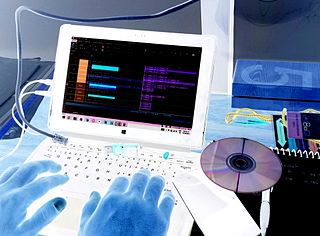Webinar Duration: 75 minutes
RECORDED: Access recorded version only for one participant; unlimited viewing for 6 months (Access information will be emailed 24 hours after the completion of payment)
SPEAKER: Dan Oleary
OVERVIEW:
Calibration is an essential component of every Quality Management System (QMS). An effective system includes more than just management of stickers on equipment. This presentation will give you the background need to understand the requirements and effectively implement.
The presentation states with the regulatory requirements in the FDA’s QSR, ISO 13485, and ISO 9001. After analysis of these requirements, the presentation examines available guidance documents. The FDA issued the Medical Device Quality Systems Manual to help companies implement the Quality system Regulation. Chapter 7 discusses the role of calibration systems in the QMS and helps define the regulatory expectations.
ISO 10012:2003 Measurement management systems – Requirements for measurement processes and measuring equipment, a document in the ISO 9000 family, specifies quality management requirements of a measurement management system that can be used by an organization performing measurements as part of the overall management system, and to ensure metrological
Why should you Attend:
Managing your calibration program is a key element in delivering good products and services. You must satisfy the QMS requirements but first you need to understand them. You need to know when a piece of equipment needs to be in the calibration recall program and when you can identify it as “no calibration required”. When you introduce a piece of equipment, you will establish the initial calibration interval. It is likely that the initial interval is not optimum. You will learn some optimization methods that will allow you to adjust the calibration interval.
Your Quality Management System (QMS) should be able to address these questions about your Inspection, Testing, and Measurement (IM&TE). If not, then your team needs to attend this webinar!
– Is your IM&TE suitable for its intended purposes and is capable of producing valid results?
– Do you have procedures for handling, preservation, and storage of IM&TE?
– Do you understand the meaning of accuracy and precision?
– Have you established remedial actions when the equipment doesn’t meet limits for accuracy and precision?
– Do your calibration records include the equipment identification, calibration dates, the individual performing each calibration, and the next calibration date?
Areas Covered in the Session:
– Metrology requirements of FDA QSR
– Metrology requirements of ISO 13485 and ISO 9001
– Understanding metrology terms
– Accuracy
– Precision
– Traceability
– Chapter 7 of the FDA’s Quality Systems Manual
– ISO 10012:2003 requirements
Learning objectives:
– Understand the requirements of the FDA’s QSR for calibration
– Understand the requirements of ISO 13485, ISO 9001, and their differences
– Distinguish between accuracy and precision and give an explanation of each term
– State the FDA’s expectations of a good calibration control system
– Understand how to establish a measurements management system
Who Will Benefit:
This webinar is for people involved in the metrological aspects of medical device manufacturing and design. The principles are larger in scope than medical devices, and apply to all manufacturing processes. Attendees should understand the concepts of manufacturing processes from the design or production view.
– Quality Managers
– Quality Engineers
– Production Managers
– Production Supervisors
– Manufacturing Engineers
– Production Engineers
– Design Engineers
– Process Owners
SPEAKER PROFILE:
Dan is the President of Ombu Enterprises, LLC, a company offering training and execution in Operational Excellence, focused on analytic skills and a systems approach to operations management. Dan has more than 30 years experience in quality, operations, and program management in regulated industries including aviation, defense, medical devices, and clinical labs. He has a Masters Degree in Mathematics; is an ASQ certified Biomedical Auditor, Quality Auditor, Quality Engineer, Reliability Engineer, and Six Sigma Black Belt; and is certified by APICS in Resource Management.



